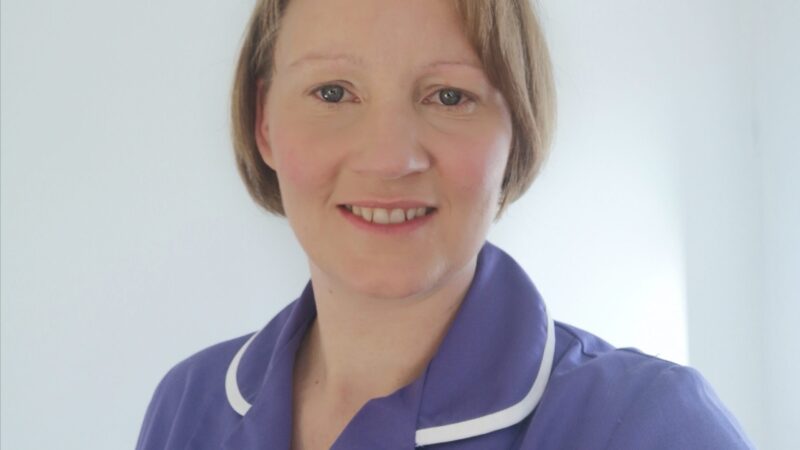
The theme this world patient safety day is Safe Care For Every Newborn and Every Child.
In the UK, around 200 babies die suddenly and unexpectedly every year from Sudden Infant Death Syndrome (SIDS). Sometimes known as cot death, SIDS is the sudden, unexpected and unexplained death of an apparently healthy baby.
We asked Gemma Hickford, Local Maternity and Neonatal System Consultant Midwife, to share their advice on how you can help reduce the risk of Sudden Infant Death Syndrome.
A Midwife’s Guide to Safe Sleep for Your Baby
As a midwife, I know one of the most important conversations we can have with new parents is about reducing the risk of sudden infant death syndrome through safer sleeping. Creating a safer sleep environment isn’t complicated, but it is important for your baby’s wellbeing.
Why Safe Sleep Matters
Young babies in particular are at risk of dying from a condition called Sudden Infant Death Syndrome (SIDS). The risk of SIDS is greater for babies under 6 months old. While we don’t fully understand all the causes, we do know what steps you can take to dramatically reduce the risks.
The Golden Rules of Safe Sleep
- Back to sleep. The safest position for a baby to sleep is on their back. Once they can roll independently from front to back and back again by themselves, they can find their own sleeping position.
- Keep your baby’s cot clear. Remove anything that isn’t essential in your baby’s cot to avoid things covering their face and affecting their breathing. Things like toys, cot bumpers and loose bedding can increase the risk to your baby, so tuck bedding in firmly and ensure it is appropriate for the room temperature.
- Use a firm, flat, waterproof mattress. This, along with lightweight bedding in their cot is all they need.
- Keep babies smoke-free. This is important during pregnancy and after birth. The Mid and South Essex NHS Foundation Trust smokefree pregnancy service helps anyone who is currently pregnant or who has recently had a baby to quit smoking.
- Avoid your baby getting too hot. Make sure your baby’s room is a comfortable temperature, around 16-20 degrees Celsius is recommended, you can use a room thermometer to help you monitor the temperature more accurately. To check your baby’s temperature, feel their chest or back of their neck, as their hands and feet will usually feel cooler. Babies do not need to wear hats indoors, and the use of duvets is not recommended, due to the risk of overheating.
- Room Sharing. It is safer for your baby to sleep in the same room as you, both day and night, in a separate sleep space for at least the first 6 months. Your baby should sleep in their own clear, flat space – whether that’s a cot, crib, Moses basket or pram carrycot. Never sleep with your baby on a sofa or armchair – this increases the risk of SIDS significantly.
Co-sleeping with your baby
Sleeping together with your baby is known as co-sleeping.
Although it’s safer for your baby to sleep in their own sleep space, I understand that co-sleeping happens. It may be planned, with some choosing it as a parenting approach, but it can often be unplanned – especially during those exhausting early months! If you’re co-sleeping with your baby, there are some circumstances when the risks increase, so it’s essential you understand what these are and therefore when it would not be advised.
When not to co-sleep with your baby
Sadly, the majority of babys who were co-sleeping when they died of SIDS, were in more dangerous situations which are listed below. In these circumstances it is best to avoid co-sleeping.
- If you or anyone in bed has recently drunk any alcohol.
- If you or anyone in the bed has smoked.
- If you or anyone in the bed has taken any drugs that make them feel sleepy or affects their awareness.
- If your baby was born prematurely (before 37 weeks) or weighed under 2.5kgs or 5½ pounds at birth.
- You’re extremely tired and feel your awareness of your baby is reduced.
In these circumstances, I would advise you not to co-sleep with your baby and to put your baby in their own safe sleep space such as a cot or Moses basket. If both parents are under the influence of drugs, alcohol or medication, a sober adult should care for your baby. Planning this in advance is best, so that dangerous and unplanned situations can be avoided.
Co-sleeping more safely
If you do decide to share a sleeping space with your baby, you can find out how to bed-share more safely from The Lullaby Trust website or by watching the co-sleeping video guide. Advice includes keeping bedding away from your baby, keeping other children or pets out of the bed, ensuring your baby cannot become trapped or fall out of bed, and never leaving your baby alone in an adult bed.
Trust Your Instincts, Follow the Guidelines
These guidelines aren’t restrictions – they’re protective measures based on research. Every time you place your baby on their back in their own clear sleep space, you’re making an important choice for their safety.
During pregnancy and following the birth of your baby(s) midwives, health visitors and other health care professionals can provide advice or answer any questions you have about safer sleeping. Make sure you have the information you need to make safe choices for your family.
More information:
Baby safe sleeping Pregnancy and maternity NHS: Best Start in Life The Lullaby Trust The Lullaby Trust – Safer Sleep Easy Read